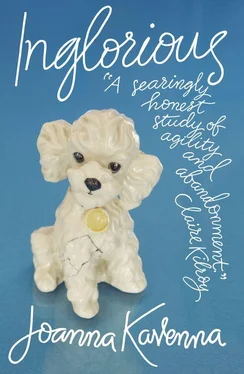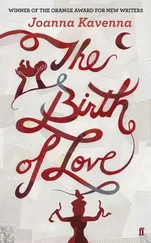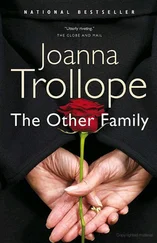There was an evening in late May when she found herself standing on a street — she wasn’t entirely sure where she was — and then it seemed to her that the street was widening and widening and the numbers of buses and cars multiplying indefinitely, and there were rows and rows of people stretching eternally, and the ghosts of the dead vivid and clear in the dusk. ‘I had not thought,’ she said out loud, attracting silent glances from the habitués around her. ‘Bloody hell there’s a lot of us,’ she added. She reeled past the Albery eyeing the neon haze and the streetlights and the shadows seeping from the winding alleys. Then the crowds seemed to vanish altogether, and she thought of purse pinchers and long-gone hawkers, the flotsam of another era. She thought of them with their capes and cloaks and buckled shoes, and their hats and moustaches and the smell of the streets — dung and offal. They vanished too, and she imagined the city dead and gone, a fierce wind blasting across the earth. She shrugged that off, because it was making her worry. Because the buses looked teeming and drunk with weight she walked home. Three hours later, she arrived at her flat, grimy and sweating, talking quietly to herself.
Leaving her job had a few immediate consequences. Peter the editor called her up, which had never happened before. Gravelly and disappointed he said, ‘What are you doing, Rosa? Are you ill?’ Not ill, she had explained. She told him she was fine. She wanted a change of direction. ‘Towards what?’ he demanded. It was as if she had blasphemed in church. She thought of him, a holy confessor with a beard and a belly, sitting in his office with a view of the street. He never went home before 10 p.m. He had a wife and an assortment of children. A well-paid, powerful job. He lunched with politicians, artists, writers, contemporary sages and wide-eyed pundits; anyone he asked to lunch came along, talked to him with commitment. A Good Life, in his terms. ‘You’ve worked so hard to get to this point,’ he said. She thanked him, but she said she couldn’t go back. ‘Ridiculous,’ he said. ‘Give me a call if you change your mind. Don’t leave it too long.’
She said, ‘That’s very kind.’
‘Come on, Rosa, give it another go.’ It sounded reasonable and she said she would think about it. She thanked him and then he was gone for ever. ‘Do you really want to squander everything?’ — that was Grace’s version, two days later. Grace — compassionate, withholding evidence — hectored her over a bottle of wine. A hectoring from Grace was no ordinary hectoring. It had sound and fury, high drama. Grace was truly dazzling. She liked to smoke and blast out words. She was incessant in her talk, and that had first attracted Rosa to her. She was a comparatively new friend; it was hard to say if she was more Liam’s friend than Rosa’s. Rosa had found her at a party, and she swiftly became a fixture. She brought around takeaways and wine and spent long hours at their flat. She was good to be with: she was witty, hilarious, in a conspiratorial way. At parties, she whispered asides behind her hand. Like Liam, she was charming. She glistened with charisma.
‘Do you really want to sink without trace?’ Grace added. The phrase stuck in Rosa’s brain. Sink without trace?
‘I assumed I would,’ she said. ‘It’s what we do.’
‘Rubbish!’ said Grace. ‘Total rubbish!’ Her hands were folded in her lap. She kept her gestures succinct and certain. She smiled as she spoke but she was steely all the same. When she smiled she showed dozens of shiny teeth. Her hair was blonde and she wore it round her shoulders like a vestal virgin. She looked elegant, as she always did, in a skirt that hugged her hips, an open-necked shirt that showed her verdant olive skin. Still, she was inquisitorial and there were certain things she stridently defended. Sitting with her legs crossed, brow furrowed over the matter at hand, Grace said, ‘You owe it to yourself.’
‘I have exerted my right to choose,’ said Rosa.
‘And you choose failure and ignominy,’ said Grace, into her stride. Any moment, thought Rosa, she would raise a fist. She would stand and cry, ‘To Arms!’ ‘What’s your plan?’
Rosa had no plan. This caused Grace to release another tight smile. She looked briefly as if she pitied Rosa. Well, perhaps she did, because Rosa was in a sorry state, timorous and plaintive, picking at her nails with an empty glass before her. She had drunk too swiftly and now her head was clouded and her concentration was slipping. Still Grace had something to teach her. ‘Always plan before you leave a job,’ she was saying. ‘Or the other way round, never leave a job without a plan. Are you hoping Liam will support you?’ This she said leaning forward, face close to Rosa’s, glass of wine in one hand, orb of justice in the other.
‘No, not really.’
‘Not really? Not really? Come on, Rosa, don’t be ridiculous! You can’t expect him to do that. You don’t really expect him to do that, do you? What do you mean by not really?’ Suddenly Grace seemed unhappy. Her mouth twisted and she looked pained. That was unusual for Grace, who conducted herself with compelling sangfroid, and it made Rosa stare at her. She thought it was something about her indecisiveness, her complete failure to act, which was distressing Grace.
‘I mean probably I don’t,’ she said.
Now Grace became quite ferocious. She set down her glass and looked Rosa deep in the eyes. ‘Rosa, you have to explain this. Probably? Please tell me what you’re feeling,’ said Grace.
And, nervous because Grace was so fixed on her, Rosa said, ‘No, you’re right. I have to stand alone. I was inert, idle, generally lazy. It’s a shock when you hit the water, cold on your limbs, but now it’s better. Now I am beginning to change.’
‘Exactly, you said it,’ said Grace. ‘Don’t just depend on Liam. That’s a foolish thing to do.’ She seemed to relax. She had been holding herself upright, looking angular, and now she curved again. Grace had a delicate slouch. She hunched her shoulders like a child. Her sudden tautness was perplexing at the time, then they moved on.
*
As for her father! Well, Rosa genuinely frightened her poor father. She understood the deal. He had worked hard, and now he expected a leisurely decline. His wife was dead and for a time he had been a wide-eyed embodiment of grief, quite crazy in the living room, later unkempt in the garden, given to sudden fits of weeping. He wept like he was dying, gasping and holding his head. Really, in the nineteenth century he would have died and they would have said it was from his broken heart. But the doctors had buoyed him with remedies. They cranked him up again and now he was running along well enough. He was not happy, certainly, and it bothered Rosa that she was making him anxious. Still, he had other matters to consider. Aside from the weight of grief, heavy upon him, he was seventy, living on his pension, a recent convert to all sorts of homeopathic medicines, observing a waiting-room diet of fruit and vegetables. If he didn’t make her his top priority she understood why. ‘I don’t expect any help,’ she told him when he called to berate her. He held her up, pinned her so she couldn’t struggle and told her off as if she was a child. On the counter-attack, Rosa began, ‘I’ll manage fine —’
‘You always do,’ he said, interrupting promptly. ‘You always did, I mean, until now. I
understand, Rosa. I feel desperately sorry. But this isn’t the right thing to do.’
‘No no, no,’ she said. ‘It’s not a bad thing. I’ve decided to take stock,’ she said.
‘Take stock, what does that mean?’
‘I’ve been feeling a little under the weather. As if I’m suffering from …’
Читать дальше












